Events & Promotions
|
|

GMAT Club Daily Prep
Thank you for using the timer - this advanced tool can estimate your performance and suggest more practice questions. We have subscribed you to Daily Prep Questions via email.
Customized
for You
Track
Your Progress
Practice
Pays
Not interested in getting valuable practice questions and articles delivered to your email? No problem, unsubscribe here.
- Nov 20
07:30 AM PST
-08:30 AM PST
Learn what truly sets the UC Riverside MBA apart and how it helps in your professional growth - Nov 22
11:00 AM IST
-01:00 PM IST
Do RC/MSR passages scare you? e-GMAT is conducting a masterclass to help you learn – Learn effective reading strategies Tackle difficult RC & MSR with confidence Excel in timed test environment - Nov 23
11:00 AM IST
-01:00 PM IST
Attend this free GMAT Algebra Webinar and learn how to master the most challenging Inequalities and Absolute Value problems with ease. - Nov 25
10:00 AM EST
-11:00 AM EST
Prefer video-based learning? The Target Test Prep OnDemand course is a one-of-a-kind video masterclass featuring 400 hours of lecture-style teaching by Scott Woodbury-Stewart, founder of Target Test Prep and one of the most accomplished GMAT instructors.
You’ve probably heard this before:
Sounds great on paper...
But imagine being a test-taker who’s never seen an adaptive test before, has no clue what MSR or DI even means, and barely knows how many questions they’re supposed to answer.
In that case, how are you supposed to self-analyze anything?
Let’s be honest, that advice often feels like asking someone to reverse-engineer a spaceship when they don’t even know where the cockpit is. Sure, it sounds actionable, but in practice, it can be overwhelming and (worse) demotivating. You start questioning whether you're even built for this test.
For example: “Improve your time management on MSR.” Great! Except... what even is MSR?
So Should You Ignore the First Mock?
Not entirely.
Yes, it’s okay to acknowledge you didn’t know much going in. But also, it’s 1 of the 12 Official Mocks you get, and those are rare and precious. So don’t just shrug it off.
Give it the respect it deserves: not too much, not too little.
Somewhere in the middle is the sweet spot - a practical, emotionally sane takeaway from that cold start.
My Cold Mock Performance
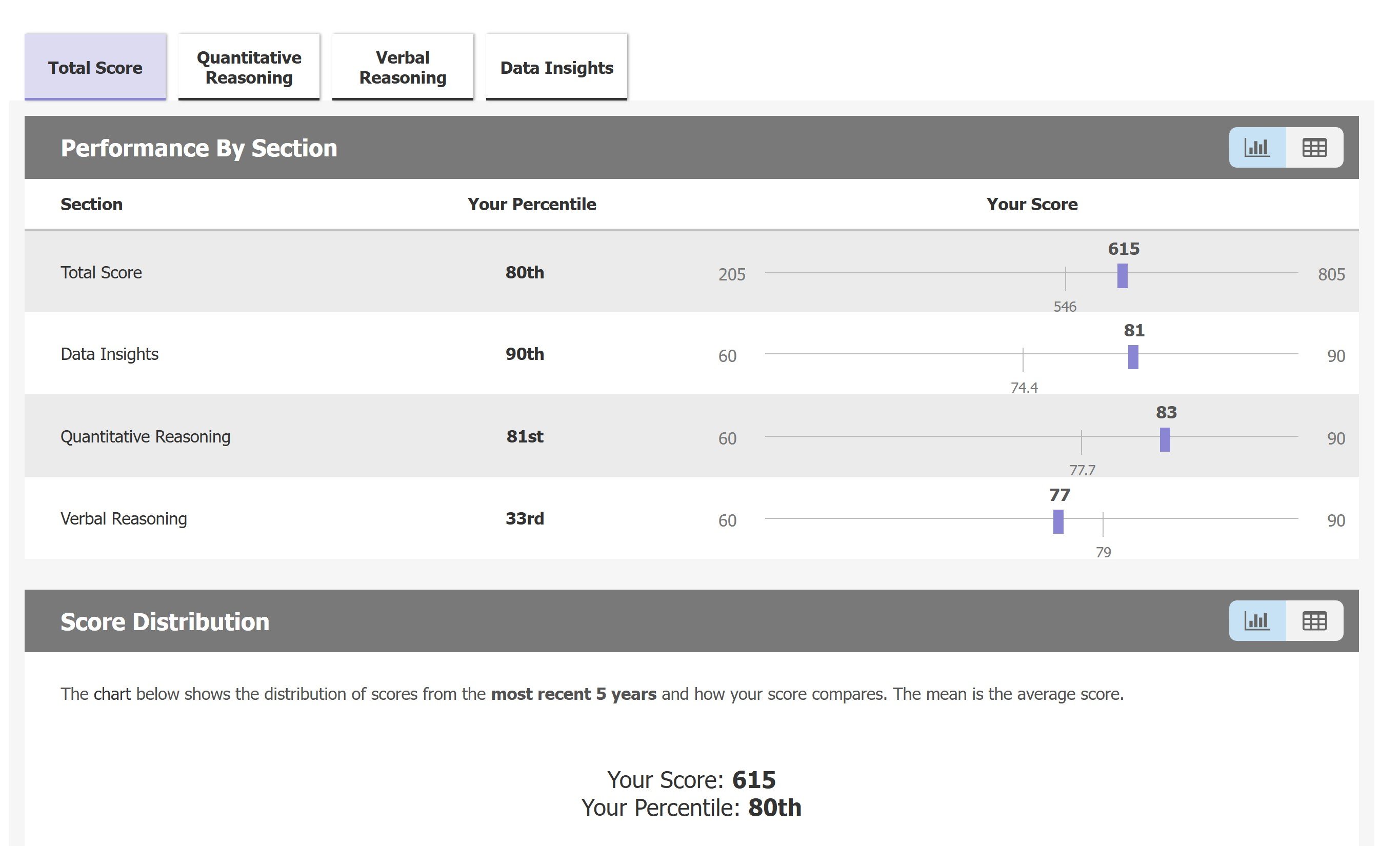
Overall Score.jpg [ 263.73 KiB | Viewed 546 times ]
Score: 615
Yes, that was me. Not exactly the scorecard you want to screenshot and post on your fridge. But we’re being honest here.
Now, you might think “615 is a good baseline!” And sure, it might be, but it actually depends on your target score which in my case was 695 and believe me, that 80-point jump felt like climbing Everest in flip-flops. And let’s not forget: improving from 615 to 695 can be just as hard (or harder) as someone navigating from 535 to 655. The curve gets steeper as you go higher, and hence the insights I’m sharing here apply no matter where you’re starting from.
So this mock did one thing brilliantly - it measured the gap between my reality and my ambition.
But then came the harder part: “Cool... now how do I close this gap?”
Frankly I didn’t have the answers. And that’s the point...
Let me ask you this:
Recall a time you faced a challenge that felt insurmountable.
Did you have all the answers on day one? Probably not.
But did you figure it out step by step with whatever tools you had? Probably yes.
GMAT is no different. It's eventually preparing to become a successful business leader.
That’s why I’m not going to list all the resources you can Google. Because you’ll find them. This isn’t about feeding you answers but it’s about helping you ask the right questions.
Breaking Down the Delta
Once you know your goal score, the next step is to translate it into raw numbers.
Let’s say my target was 695 -> that’s around a raw score of 255.
Some ways to get there:
My mock was: Q83, V77, D81
“Lucky me, I need least work on DI?” - I wish. 😅
In reality, I needed meaningful improvement across all three, with Verbal clearly being the weakest.
This was the second big insight: Identify where you’ll get the best ROI on your time. It’s not just about which score is lowest - it’s about which section is bleeding both time and accuracy and where you can good returns on your effort.
Understanding My Time + Accuracy
Here’s what my breakdown told me:
Quant:
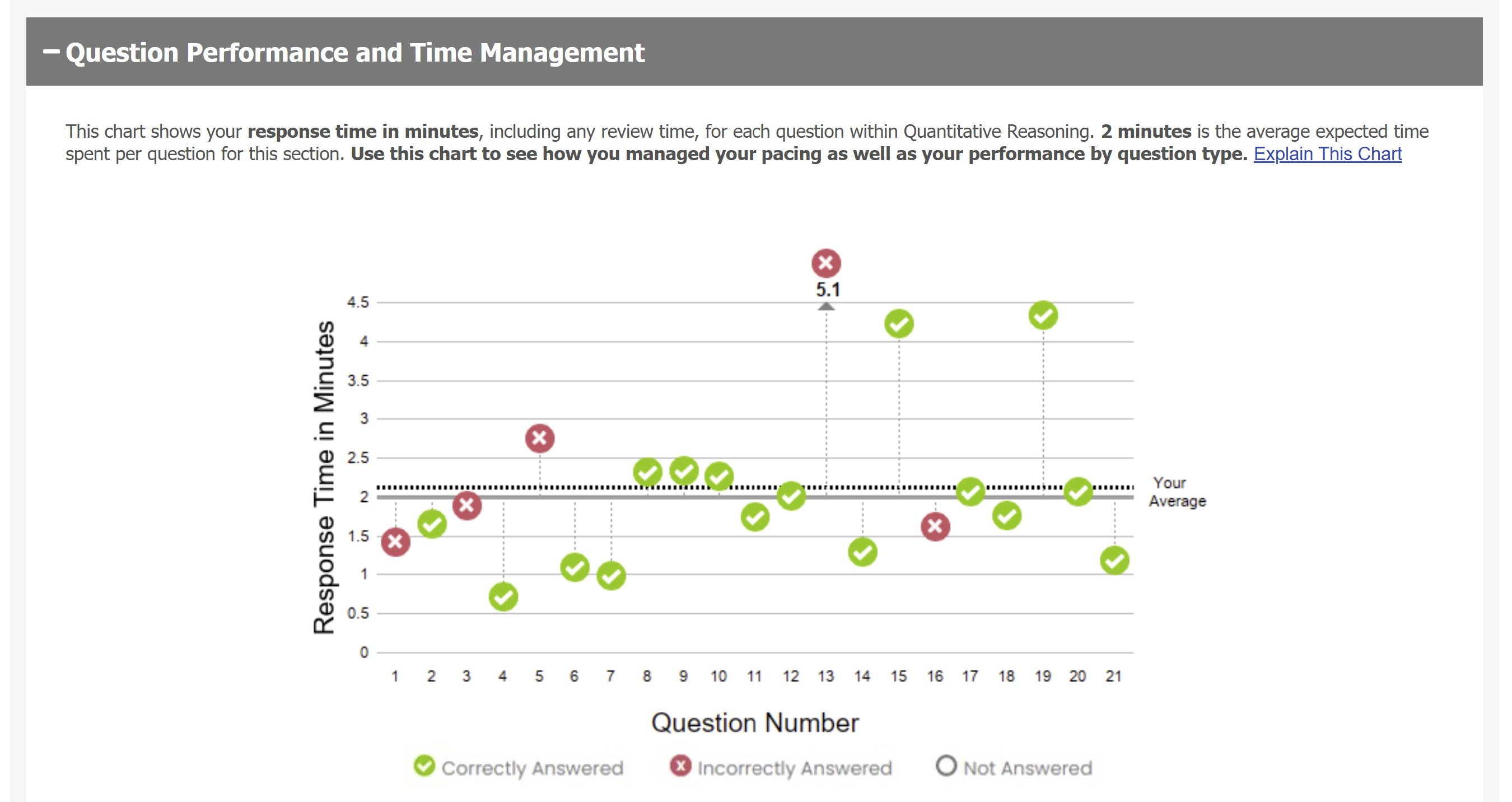
Quant Score.jpg [ 266.27 KiB | Viewed 492 times ]
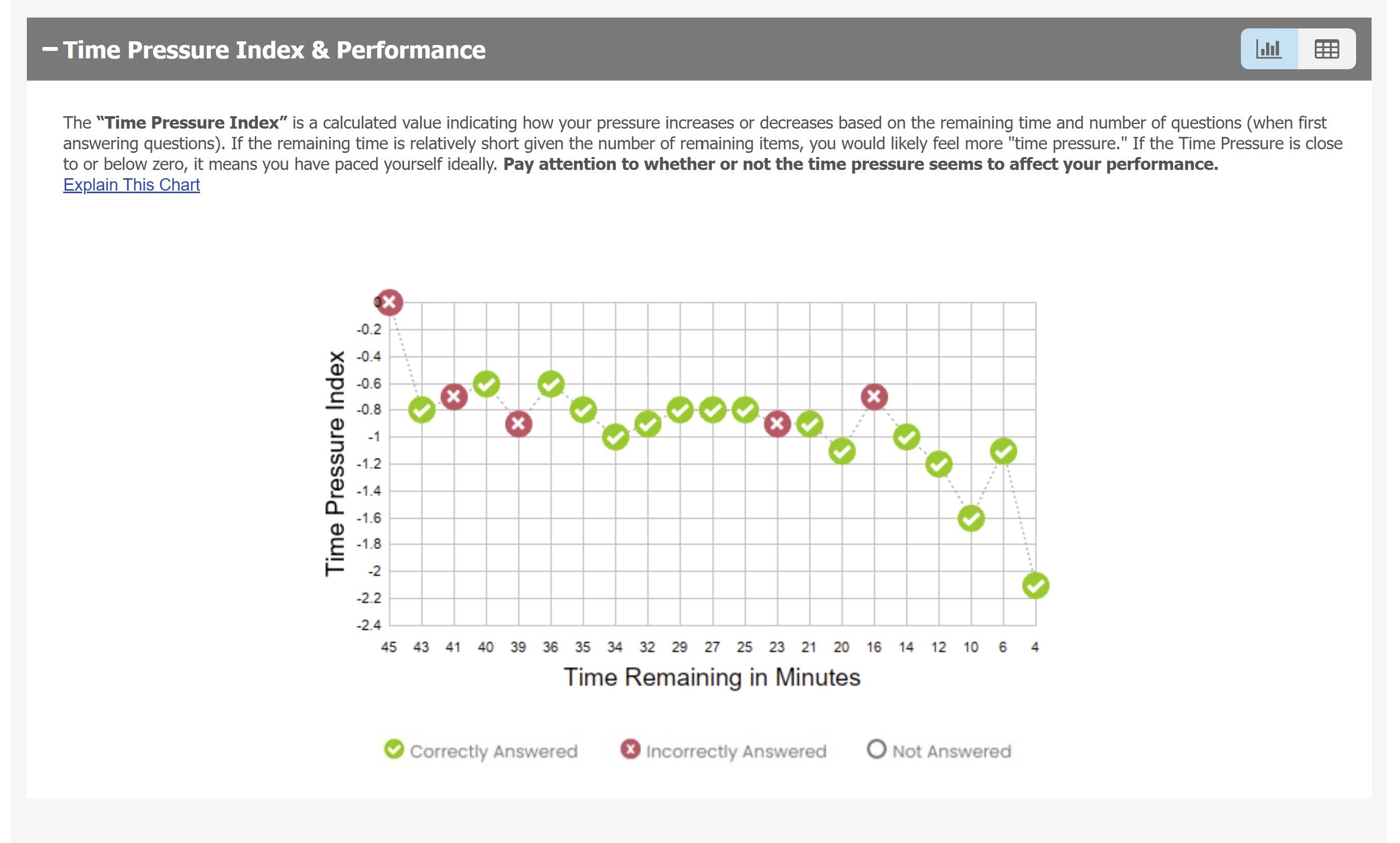
Quant Time Pressure.jpg [ 342.32 KiB | Viewed 499 times ]
Accuracy and timing were mostly okay. My errors? Silly, rusty mistakes.
Next Steps: I skipped fundamentals and jumped into targeted med/hard practice for this section.
Verbal:
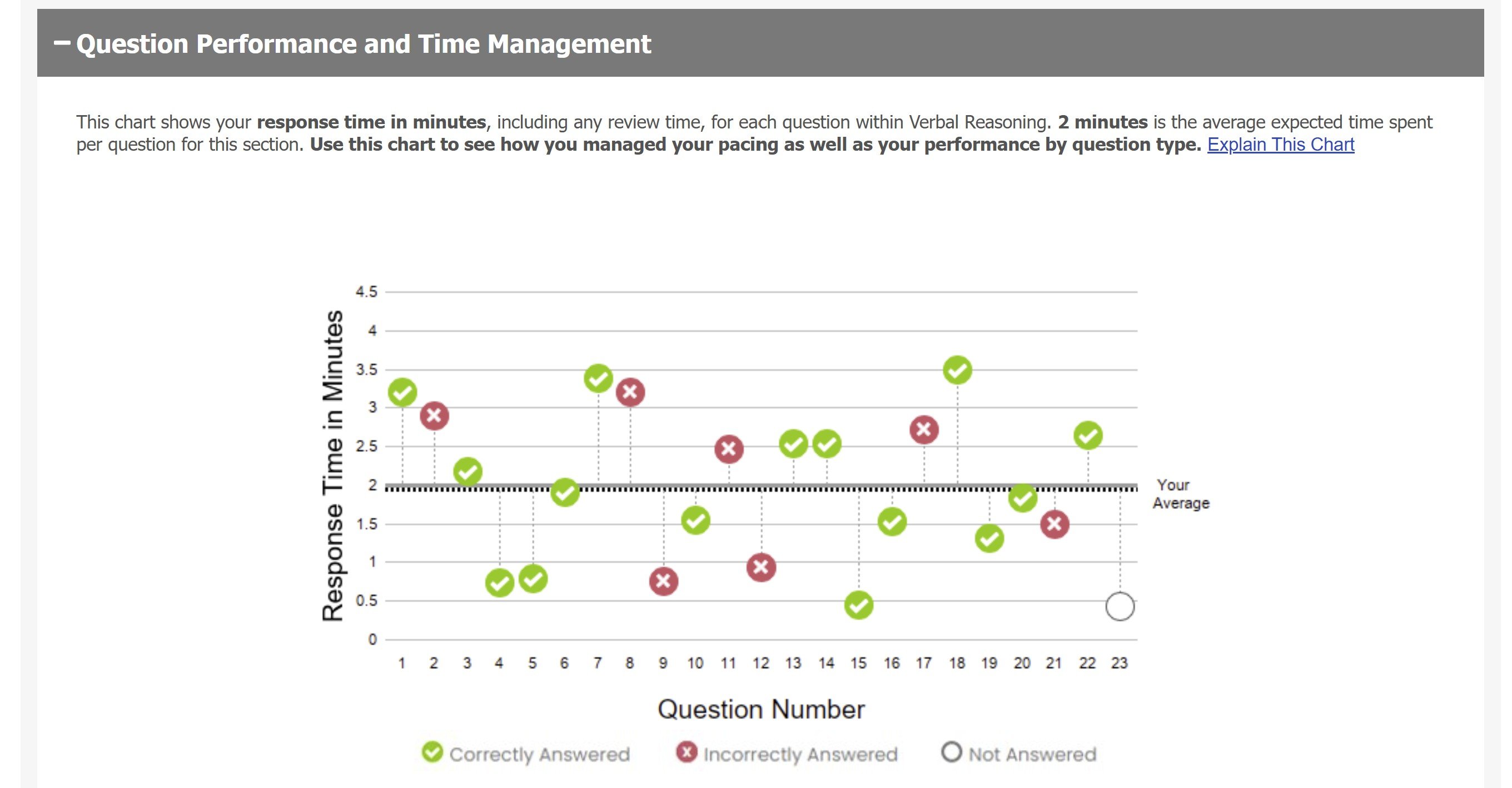
Verbal Score.jpg [ 265.92 KiB | Viewed 486 times ]
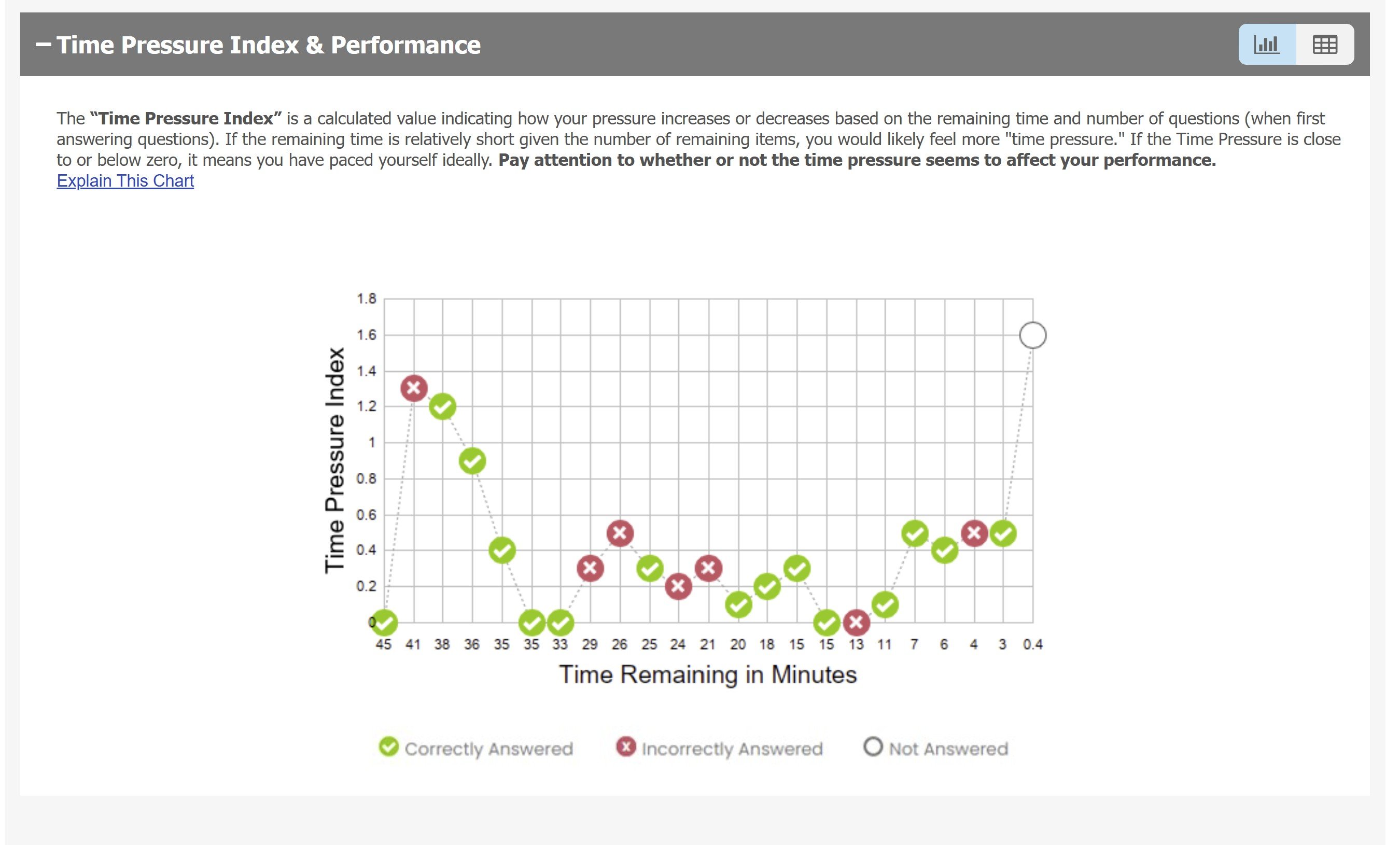
Verbal Time Pressure.jpg [ 319.18 KiB | Viewed 484 times ]
Total mess. Bad accuracy, poor pacing.
Next Steps: I needed structured learning from the ground up. Concepts, drills, timing and everything. And most importantly, ensuring that every question is attempted.
DI:
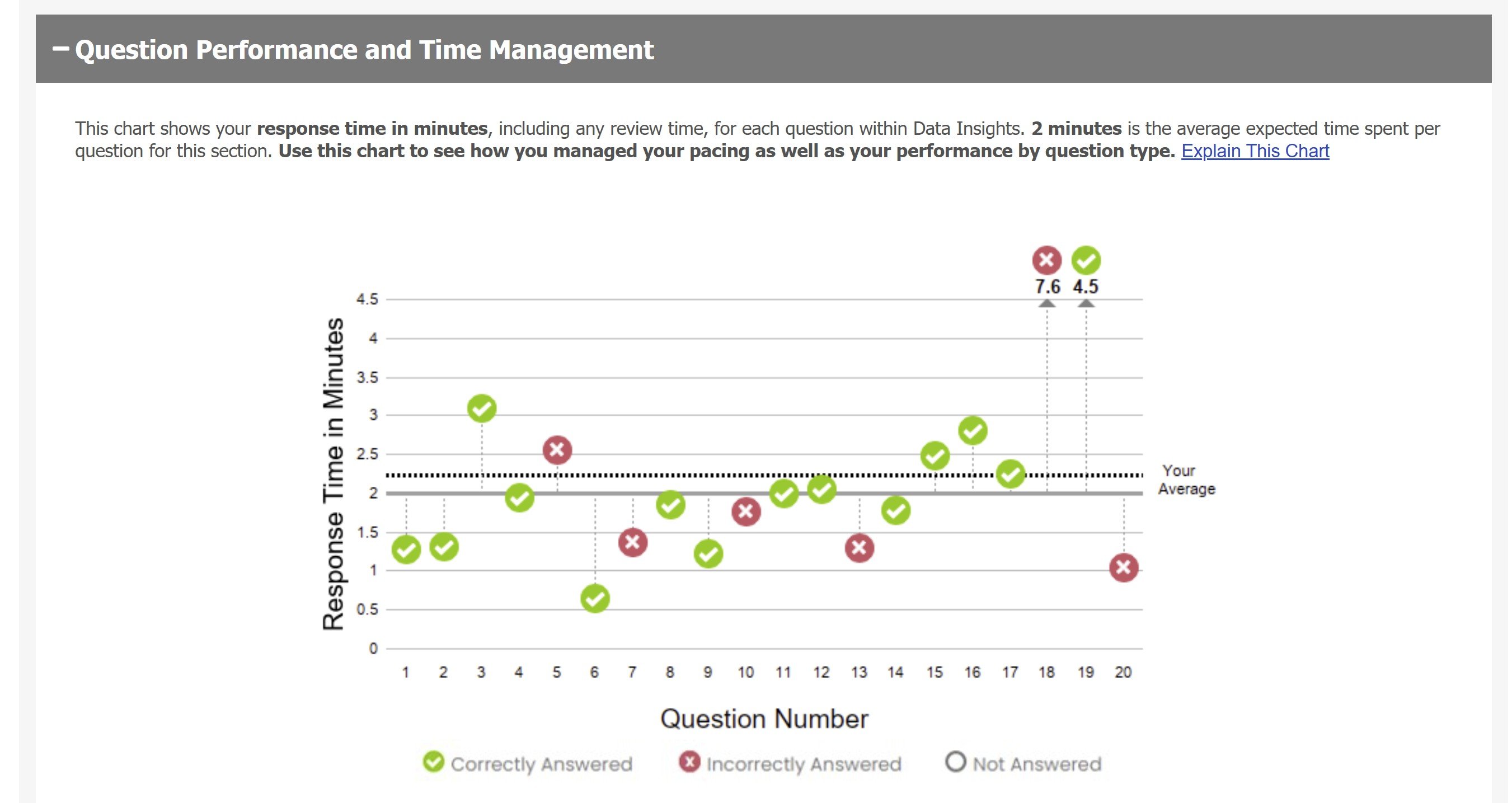
DI Score.jpg [ 269.17 KiB | Viewed 485 times ]
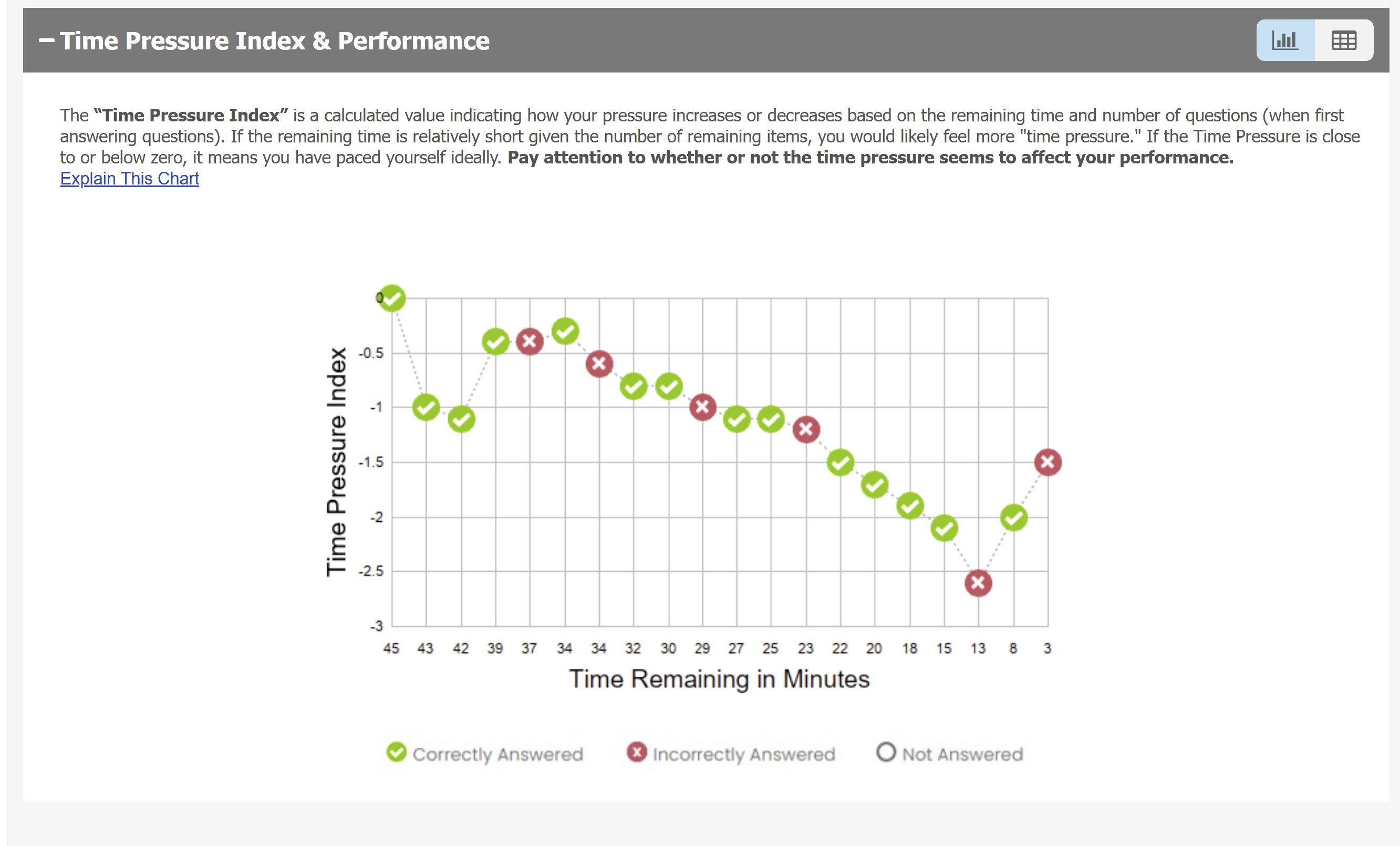
DI Time Pressure.jpg [ 319.69 KiB | Viewed 479 times ]
Not bad. A couple time crunches at the end, but decent control overall.
Next Steps: No need to rush this section. I decided to focus on Verbal and Quant first and revisit DI later. A big mistake... but that's a story for another day.
So... What Next?
Once you know what to improve, the next question is how.
Here's what I’d recommend to my past self:
But How Long Will It Take?
Ah yes, the existential GMAT question.
Short answer? It depends.
Long answer? It really depends - on how consistent you are, how smartly you reflect, and how well you recover from burnout.
Most people do best in a 6–9 month timeline, assuming steady effort.
Can it be done in 3? Sure.
Should it? Only if you’re a masochist or already near your target. 😅
Don’t Obsess Over Topic-Level Insights Yet
Yes, you can dig into each question and analyze the hell out of it. But that’s not the best Day 1 use of your time. At this stage, your goal isn’t to fine-tune. It's okay to just understand your section-wise pacing and performance which will help you set a direction. You’ll get to fine-grained analysis in Mocks 2, 3, and 4.
For now? Fasten seatbelts, heavy turbulence ahead.
If you’re feeling disheartened after your first mock - that’s normal. It doesn’t mean you’re not cut out for the GMAT. It just means you’ve officially started...
And that’s the most important thing you’ll do on this journey.
Quote:
Sounds great on paper...
But imagine being a test-taker who’s never seen an adaptive test before, has no clue what MSR or DI even means, and barely knows how many questions they’re supposed to answer.
In that case, how are you supposed to self-analyze anything?
Let’s be honest, that advice often feels like asking someone to reverse-engineer a spaceship when they don’t even know where the cockpit is. Sure, it sounds actionable, but in practice, it can be overwhelming and (worse) demotivating. You start questioning whether you're even built for this test.
For example: “Improve your time management on MSR.” Great! Except... what even is MSR?
So Should You Ignore the First Mock?
Not entirely.
Yes, it’s okay to acknowledge you didn’t know much going in. But also, it’s 1 of the 12 Official Mocks you get, and those are rare and precious. So don’t just shrug it off.
Give it the respect it deserves: not too much, not too little.
Somewhere in the middle is the sweet spot - a practical, emotionally sane takeaway from that cold start.
My Cold Mock Performance
Attachment:
Overall Score.jpg [ 263.73 KiB | Viewed 546 times ]
Score: 615
Yes, that was me. Not exactly the scorecard you want to screenshot and post on your fridge. But we’re being honest here.
Now, you might think “615 is a good baseline!” And sure, it might be, but it actually depends on your target score which in my case was 695 and believe me, that 80-point jump felt like climbing Everest in flip-flops. And let’s not forget: improving from 615 to 695 can be just as hard (or harder) as someone navigating from 535 to 655. The curve gets steeper as you go higher, and hence the insights I’m sharing here apply no matter where you’re starting from.
So this mock did one thing brilliantly - it measured the gap between my reality and my ambition.
But then came the harder part: “Cool... now how do I close this gap?”
Frankly I didn’t have the answers. And that’s the point...
Let me ask you this:
Recall a time you faced a challenge that felt insurmountable.
Did you have all the answers on day one? Probably not.
But did you figure it out step by step with whatever tools you had? Probably yes.
GMAT is no different. It's eventually preparing to become a successful business leader.
That’s why I’m not going to list all the resources you can Google. Because you’ll find them. This isn’t about feeding you answers but it’s about helping you ask the right questions.
Breaking Down the Delta
Once you know your goal score, the next step is to translate it into raw numbers.
Let’s say my target was 695 -> that’s around a raw score of 255.
Some ways to get there:
- (Q90, V83, D82)
- or (Q85, V85, D85)
...you get the idea.
My mock was: Q83, V77, D81
“Lucky me, I need least work on DI?” - I wish. 😅
In reality, I needed meaningful improvement across all three, with Verbal clearly being the weakest.
This was the second big insight: Identify where you’ll get the best ROI on your time. It’s not just about which score is lowest - it’s about which section is bleeding both time and accuracy and where you can good returns on your effort.
Understanding My Time + Accuracy
Here’s what my breakdown told me:
Quant:
Attachment:
Quant Score.jpg [ 266.27 KiB | Viewed 492 times ]
Attachment:
Quant Time Pressure.jpg [ 342.32 KiB | Viewed 499 times ]
Accuracy and timing were mostly okay. My errors? Silly, rusty mistakes.
Next Steps: I skipped fundamentals and jumped into targeted med/hard practice for this section.
Verbal:
Attachment:
Verbal Score.jpg [ 265.92 KiB | Viewed 486 times ]
Attachment:
Verbal Time Pressure.jpg [ 319.18 KiB | Viewed 484 times ]
Total mess. Bad accuracy, poor pacing.
Next Steps: I needed structured learning from the ground up. Concepts, drills, timing and everything. And most importantly, ensuring that every question is attempted.
DI:
Attachment:
DI Score.jpg [ 269.17 KiB | Viewed 485 times ]
Attachment:
DI Time Pressure.jpg [ 319.69 KiB | Viewed 479 times ]
Not bad. A couple time crunches at the end, but decent control overall.
Next Steps: No need to rush this section. I decided to focus on Verbal and Quant first and revisit DI later. A big mistake... but that's a story for another day.
So... What Next?
Once you know what to improve, the next question is how.
Here's what I’d recommend to my past self:
- For the section you’re weakest in: Get a course or prep book to build from fundamentals.
- For sections where you’re just rusty: Use GMAT Club, question banks, and practice sets. No hand-holding required but just more practice.
But How Long Will It Take?
Ah yes, the existential GMAT question.
Short answer? It depends.
Long answer? It really depends - on how consistent you are, how smartly you reflect, and how well you recover from burnout.
Most people do best in a 6–9 month timeline, assuming steady effort.
Can it be done in 3? Sure.
Should it? Only if you’re a masochist or already near your target. 😅
Don’t Obsess Over Topic-Level Insights Yet
Yes, you can dig into each question and analyze the hell out of it. But that’s not the best Day 1 use of your time. At this stage, your goal isn’t to fine-tune. It's okay to just understand your section-wise pacing and performance which will help you set a direction. You’ll get to fine-grained analysis in Mocks 2, 3, and 4.
For now? Fasten seatbelts, heavy turbulence ahead.
If you’re feeling disheartened after your first mock - that’s normal. It doesn’t mean you’re not cut out for the GMAT. It just means you’ve officially started...
And that’s the most important thing you’ll do on this journey.
Kudos
Bookmarks
Wow – what a refreshingly honest and deeply practical breakdown.
This post doesn’t just explain what to do after a cold mock – it actually feels like sitting down with someone who’s been through the trenches and is now handing you a flashlight and a map.
A few thoughts that really stood out
🔹 “Measured the gap between my reality and my ambition” — that line hit hard.
Because that’s exactly what the first mock is. Not a verdict, not a failure — just your starting coordinates on a journey that no one takes the same way.
🔹 Time vs. Accuracy ROI — Loved how you framed it as an investment decision. It's easy to chase the lowest section score blindly, but your reminder that improvement lies where time and accuracy bleed together? That’s the kind of insight you only gain after reflection. Huge.
🔹 Verbal from scratch, Quant strategically, DI parked — So relatable. It’s tempting to juggle everything, but knowing when to dive deep and when to pause is a subtle skill in itself.
Also, I really appreciated how you acknowledged the emotional weight of starting out: the self-doubt, the unfamiliar acronyms, the overwhelm. It's rare to see someone talk about GMAT prep not just as a technical challenge but a mental one — and you nailed that balance.
This post is more than a study plan – it’s a permission slip for others to be human, take their time, and still aim high.
Thanks for sharing your journey so transparently.
This post doesn’t just explain what to do after a cold mock – it actually feels like sitting down with someone who’s been through the trenches and is now handing you a flashlight and a map.
A few thoughts that really stood out
🔹 “Measured the gap between my reality and my ambition” — that line hit hard.
Because that’s exactly what the first mock is. Not a verdict, not a failure — just your starting coordinates on a journey that no one takes the same way.
🔹 Time vs. Accuracy ROI — Loved how you framed it as an investment decision. It's easy to chase the lowest section score blindly, but your reminder that improvement lies where time and accuracy bleed together? That’s the kind of insight you only gain after reflection. Huge.
🔹 Verbal from scratch, Quant strategically, DI parked — So relatable. It’s tempting to juggle everything, but knowing when to dive deep and when to pause is a subtle skill in itself.
Also, I really appreciated how you acknowledged the emotional weight of starting out: the self-doubt, the unfamiliar acronyms, the overwhelm. It's rare to see someone talk about GMAT prep not just as a technical challenge but a mental one — and you nailed that balance.
This post is more than a study plan – it’s a permission slip for others to be human, take their time, and still aim high.
Thanks for sharing your journey so transparently.
Moderator:
















